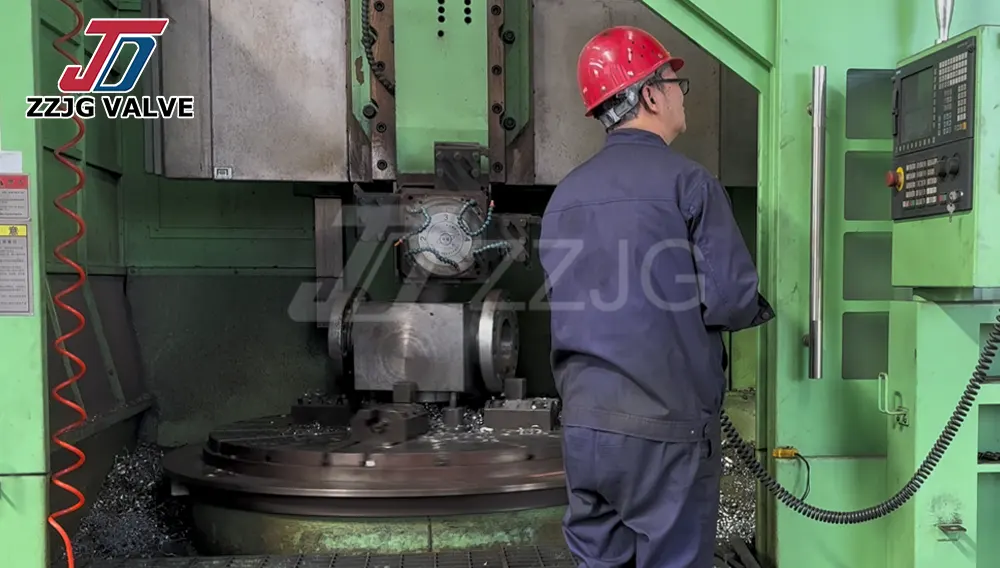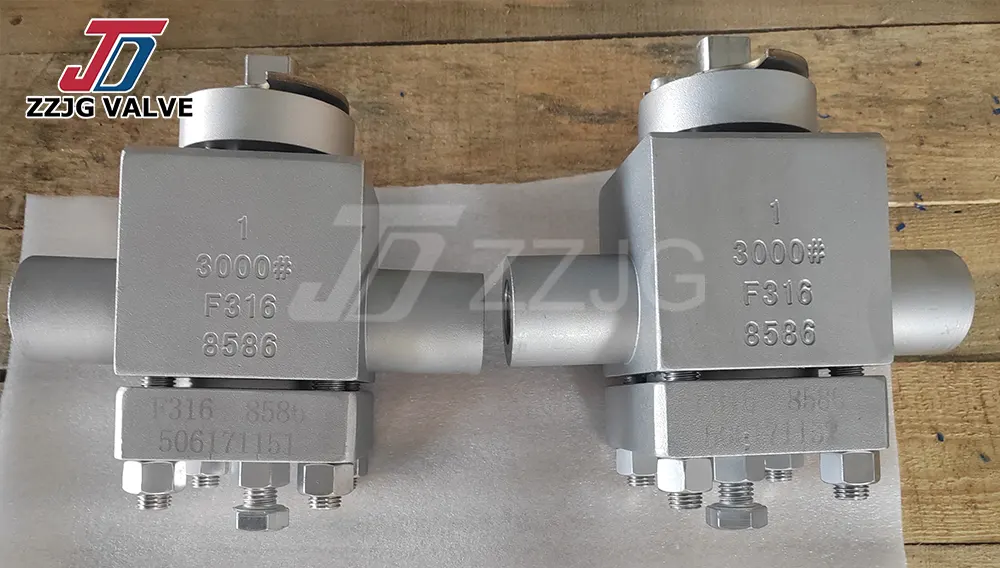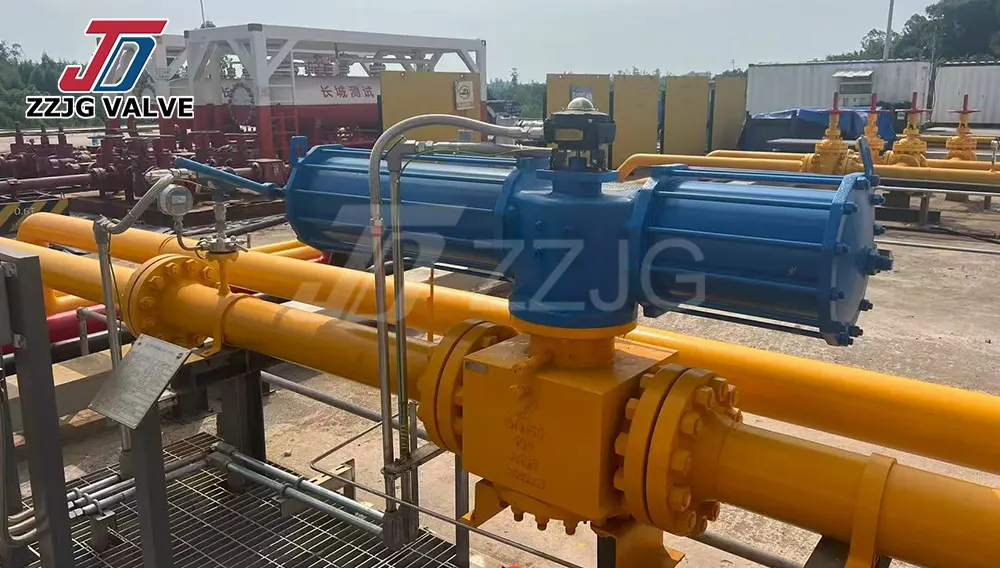Square Forged Stainless Steel Plug Valve Supplier
10 Oct, 2025
In a factory's piping system, valves act like switches controlling water flow. Choosing the right valve ensures a safer and more efficient process. Today's discussion features square forged, one-piece stainless steel plug valves, increasingly used in the oil, chemical, and natural gas industries, thanks to their robust materials and design.

1. Advantages of Factory Forging
This valve is forged from a single piece of stainless steel, unlike conventional valves that are welded together. This eliminates the risk of weld leaks, and the entire valve body is more robust, offering over 30% greater resistance to drops and impacts. The commonly used 304 and 316L stainless steel materials are surface-hardened, offering 5-8 times greater durability than ordinary steel valves in corrosive environments, such as contact with seawater and acidic and alkaline liquids, and are less susceptible to rust and perforation.
The square design is a thoughtful touch, making it easier to operate with a wrench, especially in densely packed piping areas. It also requires 20% less installation space than round valves, making installation easier in confined equipment rooms. The sealing design is also meticulously crafted. The inverted tapered valve plug is equipped with high- and low-temperature-resistant sealing packing, ensuring leak-proof operation in environments ranging from low pressures of 0.6 MPa to high pressures of 16 MPa, meeting internationally high sealing standards.
II. Adaptable to Various Harsh Environments

In high-temperature and high-pressure environments, such as high-temperature pipelines in refineries and deep-sea oil and gas production, it can withstand temperature fluctuations from -60°C to 450°C. Under high pressure, it can withstand pressures up to 25 MPa, providing a safety margin 1.5 times greater than the nominal pressure, and it remains stable and leak-proof even after prolonged use. The surface treatment reduces friction, making opening and closing the valve easier. Torque is 40% lower than that of ordinary valves, ensuring effortless opening and closing. Furthermore, it is wear-resistant and durable, capable of over 100,000 opening and closing cycles according to industry standards, extending the maintenance interval to 3-5 years and reducing downtime and repairs. With the increasing number of smart factories, this type of valve can be equipped with sensors and electric actuators, allowing remote control of opening and closing, and real-time monitoring of valve status, such as how far it is open and whether there are any minor leaks. This data can be transmitted to a central control room for centralized management.
III. Application Areas
Petrochemical: Controlling the flow of residual oil in high-temperature pipelines within refineries, 316L material is resistant to sulfide corrosion. In the compact piping of chemical reactors, the square design facilitates installation and provides a secure seal, preventing chemical raw material leaks. One company has seen a 60% reduction in failure rates and significant maintenance savings.
Natural Gas Transmission: In city gas pressure regulating stations and long-distance gas pipelines, this valve can be opened and closed flexibly even at low temperatures (-40°C). Its anti-static design eliminates safety hazards, and it has been used in large-scale domestic gas transmission projects for eight years without any problems.
Water Treatment: High-pressure piping in seawater desalination equipment, 316L material resists chloride ion corrosion. In acid and alkali pipelines for chemical wastewater treatment, the sealing material is resistant to strong acids and alkalis, extending its lifespan three times that of ordinary valves.
IV. How to Select a Model
Consider the media: For standard water or food-grade liquids, 304 stainless steel is sufficient. For highly corrosive liquids like seawater and hydrochloric acid, choose 316L. For special fluorine-containing media, opt for a Hastelloy-lined version. Also consider the liquid viscosity. For very thick liquids, choose a straight-through flow path to reduce resistance.
Consider the operating conditions: Determine the pipeline pressure, temperature, and switching frequency. For high-temperature and high-pressure applications, choose an extended bonnet with heat sinks; for low-temperature applications, choose a cold-insulated design. For precise flow control, choose a valve plug with a V-notch.
Consider the connection method: Choose flange, threaded, or welded connections depending on the pipe interface. Actuation options include manual, electric, and pneumatic. For electric applications, choose one with intelligent feedback, a high level of protection, and control system integration.

Square forged stainless steel plug valves, thanks to their robust forging process and stainless steel construction, offer stable operation in a variety of harsh environments, making them suitable for both traditional industries and smart factories. When choosing, there's no need to memorize complex parameters. Simply understand the media flowing through your pipeline, the pressure, and the temperature. Then, clearly explain the installation environment to the manufacturer, and you'll find the right model. Worry-free and durable in use, with low maintenance costs, it's a reliable choice for industrial pipeline control. For those with specific application requirements, it's recommended to communicate directly with a professional manufacturer for selection advice.

1. Advantages of Factory Forging
This valve is forged from a single piece of stainless steel, unlike conventional valves that are welded together. This eliminates the risk of weld leaks, and the entire valve body is more robust, offering over 30% greater resistance to drops and impacts. The commonly used 304 and 316L stainless steel materials are surface-hardened, offering 5-8 times greater durability than ordinary steel valves in corrosive environments, such as contact with seawater and acidic and alkaline liquids, and are less susceptible to rust and perforation.
The square design is a thoughtful touch, making it easier to operate with a wrench, especially in densely packed piping areas. It also requires 20% less installation space than round valves, making installation easier in confined equipment rooms. The sealing design is also meticulously crafted. The inverted tapered valve plug is equipped with high- and low-temperature-resistant sealing packing, ensuring leak-proof operation in environments ranging from low pressures of 0.6 MPa to high pressures of 16 MPa, meeting internationally high sealing standards.
II. Adaptable to Various Harsh Environments

In high-temperature and high-pressure environments, such as high-temperature pipelines in refineries and deep-sea oil and gas production, it can withstand temperature fluctuations from -60°C to 450°C. Under high pressure, it can withstand pressures up to 25 MPa, providing a safety margin 1.5 times greater than the nominal pressure, and it remains stable and leak-proof even after prolonged use. The surface treatment reduces friction, making opening and closing the valve easier. Torque is 40% lower than that of ordinary valves, ensuring effortless opening and closing. Furthermore, it is wear-resistant and durable, capable of over 100,000 opening and closing cycles according to industry standards, extending the maintenance interval to 3-5 years and reducing downtime and repairs. With the increasing number of smart factories, this type of valve can be equipped with sensors and electric actuators, allowing remote control of opening and closing, and real-time monitoring of valve status, such as how far it is open and whether there are any minor leaks. This data can be transmitted to a central control room for centralized management.
III. Application Areas
Petrochemical: Controlling the flow of residual oil in high-temperature pipelines within refineries, 316L material is resistant to sulfide corrosion. In the compact piping of chemical reactors, the square design facilitates installation and provides a secure seal, preventing chemical raw material leaks. One company has seen a 60% reduction in failure rates and significant maintenance savings.
Natural Gas Transmission: In city gas pressure regulating stations and long-distance gas pipelines, this valve can be opened and closed flexibly even at low temperatures (-40°C). Its anti-static design eliminates safety hazards, and it has been used in large-scale domestic gas transmission projects for eight years without any problems.
Water Treatment: High-pressure piping in seawater desalination equipment, 316L material resists chloride ion corrosion. In acid and alkali pipelines for chemical wastewater treatment, the sealing material is resistant to strong acids and alkalis, extending its lifespan three times that of ordinary valves.
IV. How to Select a Model
Consider the media: For standard water or food-grade liquids, 304 stainless steel is sufficient. For highly corrosive liquids like seawater and hydrochloric acid, choose 316L. For special fluorine-containing media, opt for a Hastelloy-lined version. Also consider the liquid viscosity. For very thick liquids, choose a straight-through flow path to reduce resistance.
Consider the operating conditions: Determine the pipeline pressure, temperature, and switching frequency. For high-temperature and high-pressure applications, choose an extended bonnet with heat sinks; for low-temperature applications, choose a cold-insulated design. For precise flow control, choose a valve plug with a V-notch.
Consider the connection method: Choose flange, threaded, or welded connections depending on the pipe interface. Actuation options include manual, electric, and pneumatic. For electric applications, choose one with intelligent feedback, a high level of protection, and control system integration.

Previous: Common Plug Valve Problems & Solutions for Middle East Clients
Next: Mongolian Customers Visit ZZJG VALVE to Inspect Plug Valves